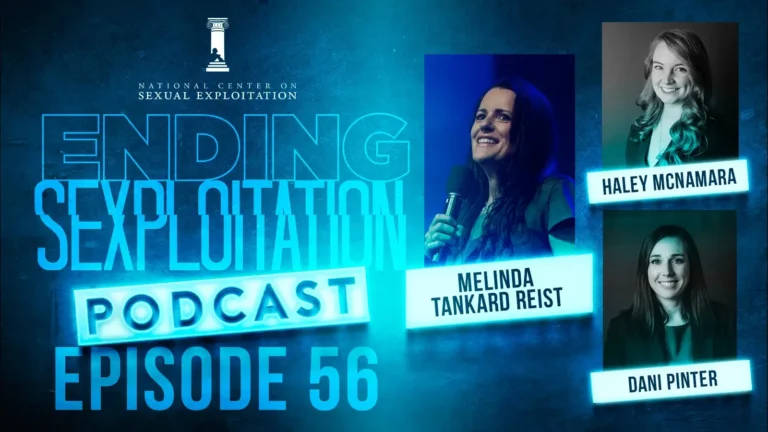15-year-old Riley barely used social media, but he had joined Facebook looking to buy a snowmobile off of its marketplace. This Facebook account, created out of a young boy’s passion for the outdoors, became the catalyst for a tragedy.
It was a typical Tuesday and Riley was walking home after feeding the family cows. He began chatting on Facebook with another user, who he thought was a teenage girl. But things quickly took a turn for the worse.
This supposed teenage girl turned out to be a scammer, who had manipulated Riley into sending them sexually explicit images. They began making threats and demanding money. When Riley couldn’t give them what they wanted, the scammer threatened to leak Riley’s sexually explicit images.
Tragically, the panic and embarrassment Riley felt as a result of this sextortion drove him to take his own life.
It’s heartbreaking to say that Riley, whose story has been shared with the consent of his family, is just one of many teens who have died after being targeted by predators on social media.
Extortion of teens online using sexually explicit images, also known as sextortion, is becoming increasingly common as Big Tech fails to enact safeguards, leaving its teen users vulnerable.
Tech companies have shown us time and time again, that no matter how much we push them, they will not make the necessary changes to protect their users, which is why we must force their hand.
On Episode 5 of “The Movement,” we are urging Congress to pass the Kids Online Safety Act (KOSA), the most comprehensive bill for child protection online!
It’s been 25 years since Congress last addressed child online safety. And seeing how far the Internet has come in that time, it would be foolish not to enact more up-to-date laws concerning this issue.
Congress is currently in the lame-duck session—which means they have less than 20 business days left to pass KOSA.
If this bill isn’t passed before then, kids will need to wait another entire congressional session before receiving these protections. How many more children will die in that period?
We must act NOW!
In the past 25 years, we’ve seen unspeakable horrors unfold online.
Walker, age 16, took his life just hours after being victimized through sextortion on Instagram. Mason, age 15, took his own life after being served a plethora of pro-suicide content on TikTok, which he never searched for. Carson, age 16, took his own life after suffering relentless torture from anonymous cyberbullies.
Children have been exploited, abused, and manipulated in ways we could have never imagined. These tragic stories DEMAND Congress’s action.
Losing one child to malicious Internet predators is one too many. Yet, we are losing child after child, while our legislative bodies have continuously stall on creating protections that could save them.
To Congress we ask: How many more children are going to die before you decide enough is enough?
We’ll answer that for you: None. Your time is up.
KOSA is positively the bare minimum when it comes to the protections we need for children on the Internet. The bill’s almost unanimous passage in the Senate showcases that, even in a time of intense political division, we have the ability to reach across the aisle and work together when children’s lives are on the line.
We are calling on the House of Representatives to follow the Senate’s lead and pass KOSA, ensuring that these essential online protections become law. We cannot wait another day, let alone another legislative session, to save the lives of our children.
With YOUR HELP, we can ensure the House takes action to pass this crucial bill.
Faces of Social Media Harm
What You Need to Know About the Kids Online Safety Act
What Would KOSA Do?
KOSA holds tech companies legally accountable to designing their products in a way that keeps children safe. It does this in the following key ways:
- Default to Safety: Currently, even when tech platforms do provide safety settings or tools for children, they are usually OFF by default. Since research shows that most people leave devices and apps at their defaulted settings, this approach puts children directly in harm’s way. KOSA would require that platforms likely to be accessed by children have the highest safety settings ON by default for minor-aged accounts.
- Duty of Care: KOSA establishes a legally actionable “duty of care” for platforms that are likely to be accessed by minors. This means that tech companies must responsibly design their products in a way that protects children, or they could face liability.
- Safeguards and Tools: KOSA requires platforms to provide safeguards for children and tools for parents or guardians to protect their kids from online dangers.
- Transparency: KOSA requires disclosure of policies and practices that companies use for personal data and minors’ safety. These public reports are an important way to hold platforms accountable and help pinpoint solutions if they are not reaching standards.
Addressing Misconceptions About KOSA
A common misconception is that KOSA will allow for certain speech to be censored on social media, especially LGBTQ+ content. However, KOSA is a conduct bill, not a content bill.
KOSA does not prevent any content from being uploaded to platforms, rather it alters the algorithms that continuously push harmful content to children.
It is true that in a former version of the bill, the language around “duty of care” was vague and could have been interpreted in a way that would impact a range of social issues, including possibly LGBTQ+ issues. However, after careful consultation with the LGBTQ+ and other communities, Congress revised the bill, specifying that the duty of care only applies to tangible harms, such as sexual exploitation, eating disorders, substance use, depression, anxiety, suicidal behaviors, physical violence, and the marketing of narcotics, tobacco, gambling, and alcohol.
This ensures KOSA will not have negative consequences for the LGBTQ+ community or anyone else. KOSA is actually crucial for protecting LGBTQ+ youth, as research shows that LGBTQ+ youth are disproportionately at risk for many of the harms that KOSA safeguards against.
Help Pass KOSA!
The House desperately needs to be educated on the need to pass KOSA. Please take 30 seconds to complete the quick action below, asking your House Representatives to attend an important briefing on why KOSA is so important.



